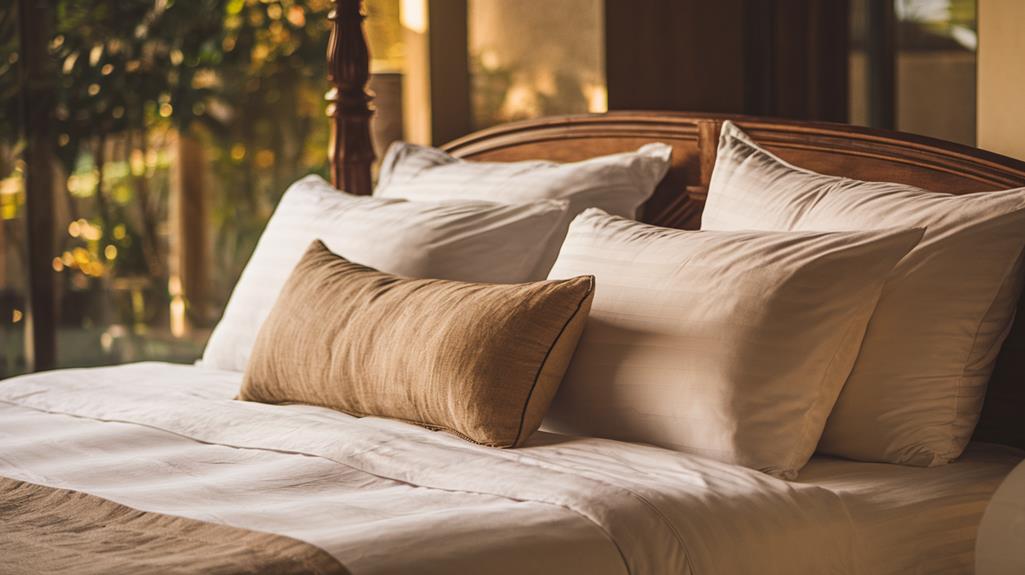Before you start shopping for your dream inn, it’s crucial to attend industry conferences and seminars for aspiring innkeepers. This will give you an understanding of what type of operation suits your financial and lifestyle goals best. A well-planned investment like this will save you time, money, and energy. You can also learn from the mistakes of others to make your journey smoother.
Owners Quarters
The needs of aspiring innkeepers can vary greatly, based on multiple factors. Transitioning from a single-family home to an inn can be challenging, depending on the space available for the innkeeper and their family. With more and more younger people becoming innkeepers, the presence of children could also be a factor. Some inns provide separate quarters for the innkeepers/owners, which could be within the inn, attached, or on separate lots. Depending on your financial situation, you might be able to buy the home with income from another job. This is common as many new innkeepers maintain other employment and may qualify for a residential mortgage for the separated owners’ quarters. Seek professional advice early to develop a strategy that fits your financial goals and the property on offer.
Are inns offered “For Sale by Owner” worth considering?
Considering inns that are “For Sale by Owner” could be a good idea, but it’s hard for sellers to objectively assess the value of the business and its assets without a valuation from a specialist realtor or appraiser. The asking price should be supported by financial data from the past three years and comparable sales.
How can I know how much of a loan I qualify for to purchase a B&B/inn?
To determine how much of a loan you qualify for to purchase a B&B/inn, a pre-qualification is needed. This process reviews the loan application and supporting documentation, including details about the buyer/s and a specific property of interest if available. The buyer/s must have sufficient capital, good credit, and suitable professional credentials, and the property in question should be able to support the desired loan amount.
What does a Pre-qualification accomplish?
Pre-qualification is a process that establishes the purchasing power of a buyer/s in relation to identifying hospitality properties that fit their financial abilities and personal/professional goals. A Pre-qualified Buyer is someone who has submitted the required proofs and documents for verification and analysis before identifying or committing to buy a specific hospitality property. This process must be completed by all parties with a 20% interest, starting with a complete application that includes identification/s, financial statements, account statements, credit scores, personal debt schedule, the most recent three years of federal tax returns, and resumes for all partners.
How does a Pre-qualification differ from a Pre-approval?
The Pre-approval process differs from Pre-qualification in commercial lending as it is issued after a preliminary underwriting determination has been made. The buyer’s qualifications and the data from the commercial property are combined to assess the risks versus the merits of the loan application.
How do I determine a fair asking/offering price for the inn/s I am considering?
To determine a fair asking/offering price for the inns you’re considering, you’ll need all financial documentation provided by the seller. Consulting a B&B Industry Specialist Consultant/Realtor who is familiar with the industry can provide valuable advice on the business’s viability and the value of its assets. Use comparable sales data to support your offer.
How much do I need to have for a down payment to purchase an inn?
As a buyer, you should have 30% to 40% of the property cost to cover the down payment (15% to 25%), closing costs (3% to 6%), and reserves (6 to 12 months of principal and interest).
Is seller financing a useful tool when financing an inn?
Seller financing can be a useful tool when financing an inn, especially if the property has been underperforming for various reasons. If the property is free from debt, the owner may consider financing the entire purchase at a rate and term competitive with local banks.
How long does it take to process and close a transaction once I/we have identified a hospitality property?
Once a hospitality property has been identified and a contract negotiated and accepted, the inspections and mortgage contingency period begins. Typically, 45 days are set aside to obtain a mortgage commitment. Due diligence begins in earnest with the ordering of inspections, title insurance, environmental and survey if needed. Once received, the mortgage processors review the title, appraisal, and environmental. It’s best to allow 90 days for closing, although closings can sometimes happen in 60 days.
Can I really use my retirement funds to open a business without taxes or penalty?
You can indeed use your retirement funds to open a business without taxes or penalties in most cases. The IRS permits the rollover of funds from qualified plans without taxes or penalties. It also allows investment of retirement funds in the stock of the sponsoring company. However, it’s essential to establish a qualified retirement plan for the new company and use it appropriately. It must be made available to all eligible company employees. It’s crucial to work with a company specializing in retirement plan design and administration to ensure compliance at setup and continued compliance year after year. If you have more than one retirement savings account, you can consolidate them all in the new retirement plan or selectively choose from them as desired.

For the answer to more Inn Financing questions, we suggest that you reach out to Rick Newman (570) 213-1903



